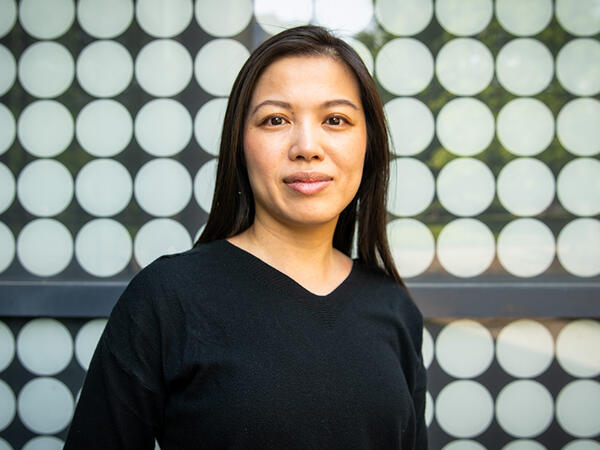In today’s global economy, innovation clusters now dominate over geography and raw resources, and the ability to attract, retain, and draw upon the knowledge and skills of a diverse population has become paramount. But the integration of internationally educated professionals (IEPs) into local professional practice can only happen with a strategically-placed helping hand.
Leslie Dan Faculty of Pharmacy Professor and Koffler Research Chair, Zubin Austin, is one of the seven inaugural recipients of the University of Toronto’s President’s Impact Award (PIA). The University established the award to recognize achievements beyond research and teaching excellence and highlight the way research outcomes shape our world beyond the confines of academia. Professor Austin received the award in recognition of his international leadership in the area of bridging education for internationally educated health professionals (IEHPs).
IEPs entering the Canadian labour force face various challenges. Immigrating professionals might lack occupation-appropriate language skills, or employers might lack guidance in assessing and interpreting the qualifications and previous experience of skilled immigrants. A major concern is the need for guidelines in providing impartial assessments of the qualifications of IEPs.
Professor Austin’s research is focused on education in the health professions, and IEHPs seeking to practice in Canada are of particular interest. From this research foundation, Austin established the International Pharmacy Graduate (IPG) program to facilitate the entry of internationally trained pharmacists into the pharmacy profession in Ontario. The IPG program was one of the first bridging education programs in Canada. To date, over 1,000 internationally educated pharmacists have graduated from this program and entered practice in Canada.
Building the IPG program involved leading collaborations between a diverse coalition of organizations and individuals. The success of the IPG model lead to the establishment of IPG programs in other countries, and it also formed the basis of bridging programs in other professions. Within Canada alone, there are now over 80 bridging programs for both health-related and non-health professions.
Such a track record of achievement has garnered Professor Austin a well-deserved place on the President’s Impact Academy. The Academy was established as part of the PIA in order to advise the U of T’s President on matters related to the promotion of research impact.
PharmSci Research Update (PSRU) had some questions for Professor Austin on the Impact Academy and his views on research impact.
Describe some of the activities directly related to your role on the President’s Impact Academy?
ZA: "We have had several meetings and are currently contemplating ways of using peer mentoring as a tool to help colleagues across campus consider research impact in their work. We are also working with U of T to advocate for research and research funding provincially and nationally and ensure that in the current political climate, research doesn't become devalued or politicized."
How do you define ‘impact’ in research?
ZA: "Sometimes the way researchers define impact might be quite different than the way other people do. To me, research impact is about real world utility, and the ways in which our research directly translates into better or easier lives for people. It's a positive impact, one that comes about because we are strategic in identifying research opportunities, pragmatic in the approach we take, and ultimately, we are interested in making sure our research gets applied and used by others."
What are the biggest challenges to having research achieve impact?
ZA: "In some ways the biggest challenges are the traditional metrics by which research has historically been measured in an academic setting. For example, the "impact factor" of a journal: many young researchers chase journals with high impact factors believing that this is an important measure of credibility. Of course, it is one measure of credibility, but impact factors and public impact can be very different things.
Thinking outside the box of traditional academic research metrics and having a clear understanding of what your audience needs from you as a researcher is more important than a simple measurement like impact factor. Another issue is the structure and system of grant-writing today. We all spend so much time and energy chasing increasingly diminishing Tri-Council grants; there may be better opportunities outside the Tri-Council system and, more importantly, audiences for our work that we don't even know about outside those systems."
Are there opportunities that currently exist for research to make greater impact – as opposed to maybe 10 or 20 years ago?
ZA: "Absolutely - there are so many new opportunities outside Canada that sometimes we overlook. For example, I have recently had some success in working with collaborators in the United Kingdom, in Qatar, and in Dubai on a diverse array of initiatives. They value a Canadian perspective and a Canadian sensibility and in other jurisdictions, resources for different projects may be much more plentiful than here. A global perspective on research can really help a lot with our work."
What are your current research activities and future directions?
ZA: "Currently, I'm very interested in the area of competency assessment of professionals, particularly of soft skills. Health professions like pharmacy have so much to learn from other professions like law and accounting, so bringing this to my work has been valuable. It is also interesting to look at the experiences of other countries and jurisdictions: again an international lens on these issues can be very valuable and more importantly can help to make my work of interest and accessible to a global audience."
More News
Image

Grad to Watch: Jackie Fule Liu’s research focuses on better outcomes for diabetes patients
A recent PhD graduate, Jackie Fule Liu combines hands-on skill and big-picture thinking to help tackle diabetes care challenges.
Read More
Image

U of T community members recognized with Order of Canada
Congratulations to Dean Emeritus and Professor K. Wayne Hindmarsh on his appointment.
Read More
Image

Welcoming Ivy Lam as Academic Lead in Climate, Health & Sustainable Care
Assistant Professor Lam will guide the Leslie Dan Faculty of Pharmacy's efforts to embed environmental sustainability across the Faculty.
Read More
